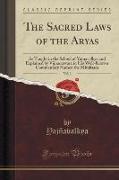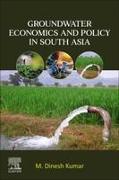The Sacred Laws of the Aryas, Vol. 3
BücherAngebote / Angebote:
Excerpt from The Sacred Laws of the Aryas, Vol. 3: As Taught in the School of Yajnavalkya and Explained by Vijnanesvara in His Well-Known Commentary Named the Mitaksara
The Prayaschitta or Penance is that portion of Hindu Law which is deemed to be of very little importance to the practical lawyer. But a right conception of Hindu Law is not possible without at least a general idea of penances and the theory underlying them. This Volume on Prayaschitta not only deals with penances strictly so called, but with Sraddhas and death-impurity also - a subject which a general lawyer should know, if he wants to understand rightly the Law of Inheritance even.
The Chapter on Penances itself, however, is not altogether devoid of interest to even a practising lawyer. In a case before me recently the dispute turned on the right interpretation of the Verse 226 of Yâjnavalkya, one side maintaining that there was no Prayaschitta for an offence knowingly and wilfully committed, and the other side contended that for every offence (whether voluntary or involuntary) there was a befitting penance. The practical form which the question assumed was whether there was any penance for a person who intentionally undertook a sea-voyage and in the course of his sojourn in foreign lands, intentionally took food prepared by non-Hindu foreigners.
According to one reading of the text of Yâjnavalkya - a reading favoured by Sulapani - there is no penance for an offence wilfully committed. That verse 226 has been read in two diametrically different ways, one ordaining penance for voluntary offences even, and the other discarding that view.
Though the construction of the verse is ambiguous, the commentary of Vunànesvara leaves no doubt. He is clearly of opinion that even for wilful offences, there is penance and that the man so purified is fit for social intercourse.
In the same case another point of not less importance also arose, the answer to which was discovered after some search in this much neglected Chapter on Penances. The question was what was to be the period of penance for an offence which was committed not once, but was repeated for several years? In other words, what was the penance for eating unlawful food for three years? One side argued that the penance should be repeated for every offence. Thus, the prohibited food being taken twice a day during 365 days of a year for three years the penance would be 2, 190 times the penance for a single offence, and if the penance for a single eating was one month's fasting that for three years would be to fast for 2, 190 months or nearly 182 years.
About the Publisher
Forgotten Books publishes hundreds of thousands of rare and classic books. Find more at www.forgottenbooks.com
This book is a reproduction of an important historical work. Forgotten Books uses state-of-the-art technology to digitally reconstruct the work, preserving the original format whilst repairing imperfections present in the aged copy. In rare cases, an imperfection in the original, such as a blemish or missing page, may be replicated in our edition. We do, however, repair the vast majority of imperfections successfully, any imperfections that remain are intentionally left to preserve the state of such historical works.
Folgt in ca. 5 Arbeitstagen




